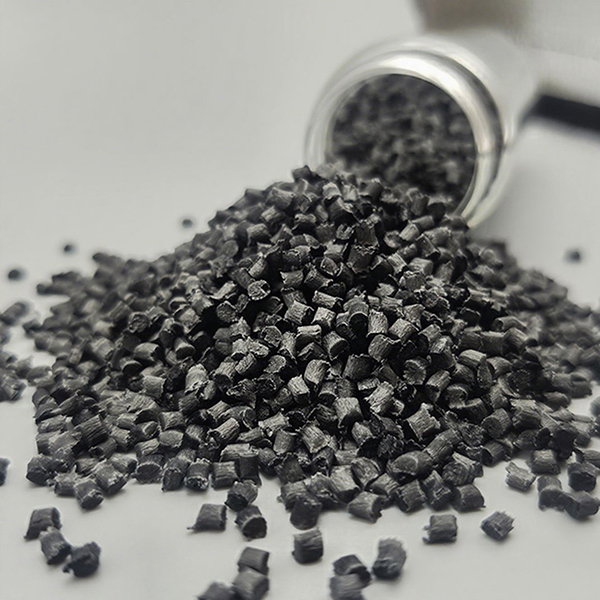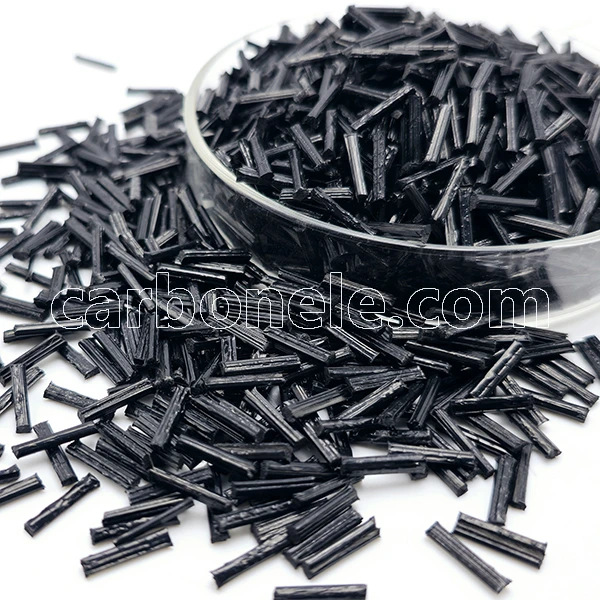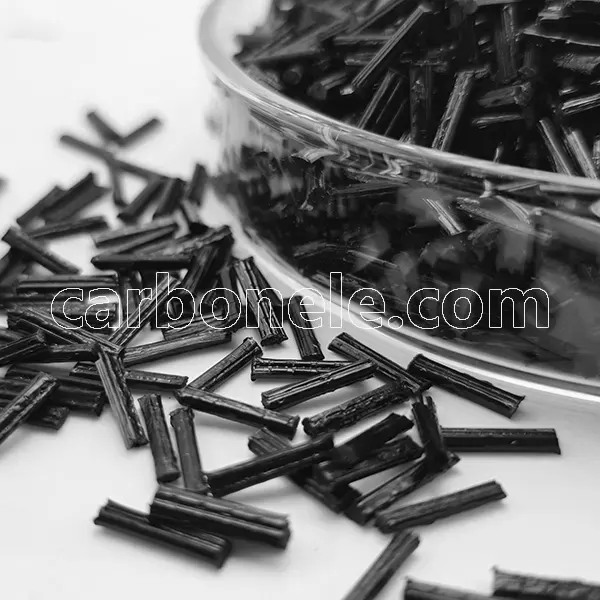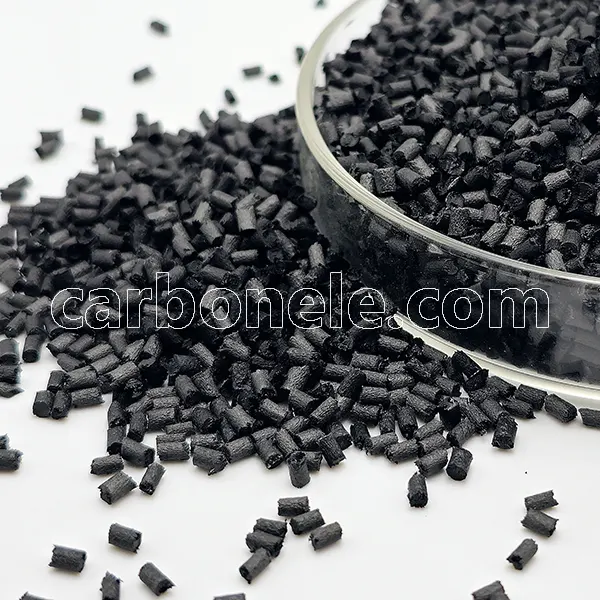PBT-CF10: The 1 Material Upgrade You Need This Quarter - Carbon Fiber Compounds Manufacturer | Supplier
Discover PBT-CF10 – a advanced carbon fiber-reinforced composite offering 40% higher strength and 30% lighter weight than standard PBT. Perfect for automotive, aerospace, and electronics applications. Request a quote today!
PBT-CF10: The 1 Material Upgrade You Need This Quarter
In the relentless pursuit of manufacturing excellence, where efficiency, strength, and precision are the currencies of success, the choice of material often dictates the ceiling of innovation.
For quarters and years, engineers and production managers have been constrained by the inherent limitations of traditional materials. Metals offer strength but sacrifice weight and lead time.
Standard polymers improve speed but falter under mechanical and thermal stress, leading to compromises that stifle productivity and innovation.
This persistent challenge, this balancing act between competing material properties, is what defines the modern manufacturing dilemma. However, a significant shift is underway, moving the industry from a state of compromise to a new era of performance optimization.
This transformation is being led by the strategic adoption of advanced engineered composites, materials specifically designed to transcend traditional limitations.
At the forefront of this movement is a material that encapsulates this new philosophy: PBT-CF10. This carbon fiber-reinforced polybutylene terephthalate composite is not merely another material option; it represents a fundamental upgrade to the manufacturing toolkit.
Its integration into production processes is a decisive step toward overcoming historical barriers, achieving unprecedented levels of operational performance, and securing a formidable competitive advantage.
Making the switch to PBT-CF10 is the most impactful decision a forward-thinking manufacturing operation can make this quarter.
Understanding the PBT-CF10 Composite Material
The exceptional performance profile of PBT-CF10 is rooted in its sophisticated composite architecture. The foundation of this material is a high-performance Polybutylene Terephthalate (PBT) polymer base.
PBT is renowned as an engineering thermoplastic for its excellent dimensional stability, strong mechanical properties, and commendable chemical resistance3. This robust polymer matrix provides an outstanding foundation for a wide array of manufacturing applications.
However, to meet the extreme demands of modern, high-stakes production environments, this base resin is compounded with a precise concentration of a specialized reinforcement: carbon fibers, typically making up 10% of the material by weight.
This integration is the cornerstone of the transformative performance that defines PBT-CF10. The embedded carbon fibers act as a microscopic internal skeleton, drastically enhancing the composite’s stiffness (flexural modulus) and tensile strength.
They are the primary agents resisting bending and deformation, enabling manufactured tools and components to maintain their precise geometry and alignment even under significant mechanical load.
Simultaneously, the PBT matrix seamlessly binds this reinforcement together, providing essential toughness, remarkable damage tolerance, and exceptional dimensional stability across varying environmental conditions.
The result is a synergistic material system where the combined whole delivers performance profoundly greater than the sum of its individual parts.
PBT-CF10 delivers a unique and highly desirable profile of high modulus, low weight, and unparalleled stability, making it a purpose-engineered solution for applications where precision, durability, and reliability are non-negotiable.
The Critical Drivers for a Material Upgrade This Quarter
The decision to upgrade a material system is never taken lightly. It is a strategic move, driven by the urgent need to address critical pain points that impede progress and profitability.
In today’s competitive landscape, several converging factors make a material upgrade not just beneficial, but essential for staying relevant.
The constant pressure to reduce product weight without compromising structural integrity is a universal challenge across automotive, aerospace, and consumer electronics sectors.
Lightweighting is directly linked to improved energy efficiency, enhanced portability, and higher performance.
Furthermore, the demand for increased mechanical strength and rigidity is perpetual.
Components must perform flawlessly under stress, resist wear over extended periods, and maintain their functionality in demanding environments.
The pursuit of greater production agility is another powerful driver. The ability to rapidly iterate designs, produce custom tools and fixtures on-demand, and respond swiftly to engineering changes or market opportunities is a significant competitive advantage.
This requires materials compatible with rapid manufacturing techniques like 3D printing, offering drastically reduced lead times compared to traditional CNC machining or metal fabrication.
Finally, exceptional thermal stability is a prerequisite for components operating in elevated temperature environments or near heat-generating sources.
Materials must maintain their dimensions and properties to ensure consistent performance.
It is within this context of exacting and multifaceted requirements that PBT-CF10 emerges as the superior material solution, effectively addressing these drivers simultaneously and positioning itself as the essential upgrade for the current quarter.
How PBT-CF10 Solves Immediate Manufacturing Challenges
The implementation of components machined, molded, or 3D printed from PBT-CF10 material illustrates a perfect synergy between advanced material properties and pressing engineering requirements.
The advantages are immediate, multifaceted, and directly target the most common shortcomings of conventional materials.
The most significant benefit is a dramatic increase in stiffness and strength. The incorporation of carbon fiber reinforcement significantly enhances the mechanical properties of the base PBT polymer.
This translates to components that resist flexing and bending under load, ensuring unwavering precision in every operation.
This eliminates the variability and quality inconsistencies introduced by less rigid tools, directly leading to higher quality finished products and the virtual elimination of scrap caused by tooling deflection or part failure.
Furthermore, the lightweight nature of PBT-CF10 composites delivers profound benefits across the board.
A component constructed from this advanced composite is markedly lighter than an equivalent part made from aluminum or steel.
This reduction in mass translates to improved energy efficiency in moving parts, easier handling for operators—reducing fatigue and the risk of repetitive strain injuries—and overall weight reduction in final products.
On automated production lines, lighter tools allow robotic arms to move faster and with greater agility, potentially accelerating cycle times and boosting overall throughput.
Perhaps one of the most compelling advantages for rapid innovation is the acceleration of production cycles.
Unlike metal tools that can require weeks of lead time for CNC machining, a complex PBT-CF10 jig or functional prototype can be designed and additively manufactured in a matter of hours or days.
This allows manufacturers to respond with unparalleled agility to engineering changes, production line reconfigurations, or the introduction of new product models. Design iterations can be made quickly and cost-effectively, dramatically accelerating time-to-market for new products.
Finally, PBT-CF10 offers exceptional long-term reliability and stability.
The material exhibits excellent resistance to creep—the tendency of a material to slowly deform under a constant mechanical load. For a fixture that must clamp parts securely for thousands of cycles, this property is non-negotiable.
Additionally, PBT is known for its low moisture absorption compared to other polymers, ensuring that a PBT-CF10 part will not swell or change its critical dimensions in humid workshop environments, a factor that could otherwise compromise precision over time and lead to costly errors and recalibrations.
Expert Insights: Industry Trends and Authoritative Opinions
The strategic adoption of advanced composites like PBT-CF10 is a central theme in the ongoing evolution of smart manufacturing and Industry .
Industry analysts and leaders consistently recognize the immense value of moving beyond conventional materials and embracing high-performance composites for both prototyping and full-scale production applications.
Industry Trends:
The market is demonstrating a clear and growing recognition of the value proposition offered by carbon fiber-reinforced polymers.
The drive towards miniaturization, weight reduction, and higher performance in sectors like automotive and electronics is creating sustained demand for materials that can deliver superior properties.
There is a pronounced shift towards materials that enable integrated functionality, such as combining structural strength with thermal management or electrostatic dissipation.
Furthermore, the convergence of advanced materials with additive manufacturing technologies is perhaps the most significant trend, as it unlocks unprecedented design freedom and agility.
This allows for the economic production of complex, low-volume, and customized parts that would be impossible or prohibitively expensive to manufacture using traditional methods.
This trend underscores a major shift in perception, where materials like PBT-CF10 are no longer seen as mere substitutes but as enabling technologies that enable innovation and competitive advantage.
Expert Opinion:
Leaders in the materials science field emphasize the strategic importance of such advancements.
While specific commentary on PBT-CF10 from a named expert is not available in the provided search results, the industry direction is clear.
The development and award-winning introduction of novel PBT-based composites by major players like SABIC for critical applications in consumer electronics underscore the industry-wide confidence in the potential of advanced PBT formulations.
The recognition of such materials through prestigious awards highlights the industry’s acknowledgment of their transformative potential. This sentiment would be echoed by engineering managers and product development leads who have experienced the transition;
they often report that upgrading to a carbon fiber-reinforced composite is less about solving a single problem and more about unlocking new possibilities in design, performance, and manufacturing efficiency.
It is a upgrade that fundamentally changes the design paradigm.
Conclusion: Securing Your Competitive Edge with PBT-CF10
The integration of advanced composites like PBT-CF10 is a pivotal development in industrial manufacturing.
The evidence presented powerfully demonstrates how this specific material provides a holistic solution to a complex set of modern challenges.
It directly addresses the critical needs for unparalleled stiffness, significant weight reduction, accelerated production timelines, and guaranteed long-term reliability.
PBT-CF10 is more than just a material; it is a foundational technology that empowers innovation.
It allows manufacturing engineers and designers to break free from the limitations imposed by traditional materials, paving the way for more agile, efficient, and cost-effective operations.
As the demands for lighter weight, higher precision, and greater operational efficiency continue to grow across all industrial sectors, materials like PBT-CF10 will be at the forefront, enabling the next generation of manufacturing breakthroughs.
The future will see PBT-CF10 and similar composites become the standard for a vast range of applications, from custom robotic end-effectors and high-strength jigs to complex structural components in automotive and electronics.
The ability to quickly iterate and produce high-performance parts in-house will continue to compress product development cycles and drive innovation.
Choosing to upgrade to PBT-CF10 for your manufacturing needs is not merely a material selection—it is a strategic decision to invest in a more flexible, efficient, and competitive manufacturing operation.
It is the one upgrade that will deliver tangible returns this quarter and for many quarters to come.
If you want to get more information about PEI-CF, you can vist our Youtube.
Previous News
ABS-CF10: End Flimsy Tooling Jigs With Our Robu...Next News
PEEK-CF10: End Chemical Degradation In Harsh En...
Feature Product
-
PA12 LCF30 for Drone Fuselages & Wings
What do you know about PA12 LCF30? PA12 ...
-
Competitive Price PA6 LCF30 Composites
What’s it? PA6 LCF30, which stands...
-
ABS CF10 Compound ABS 10%CF Thermoplastic Compo...
What’s ABS CF10? ABS CF10 refers t...









